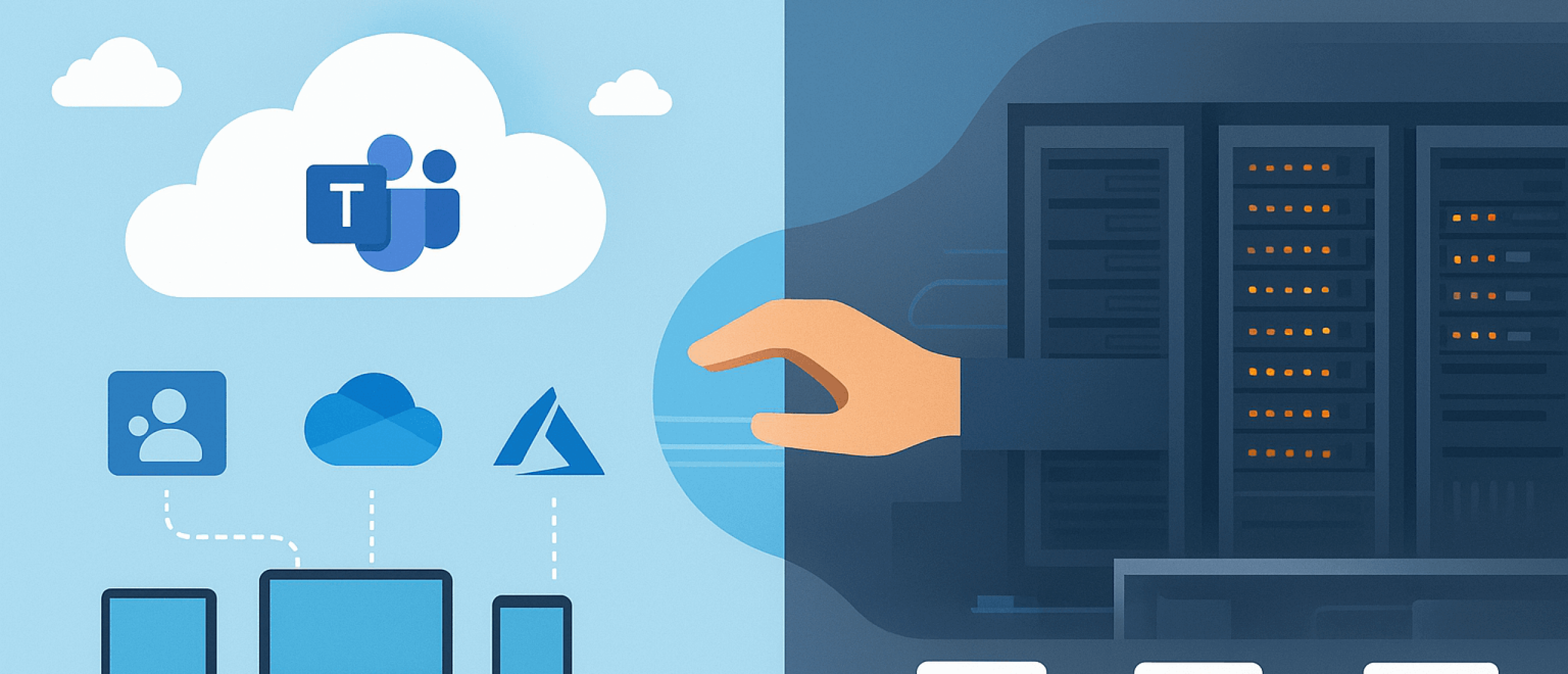
Data is the new gold. For companies it offers unprecedented opportunities but at the same time it carries significant risks. Sensitive information such as customer data, financial records, and internal business documents must be carefully protected. European legislation such as the GDPR and sector-specific requirements oblige organizations to take strict measures. Non-compliance can lead to heavy fines and severe reputational damage. In this blog you will learn more about data privacy, considerations, and risks.
Why Data Privacy Is Crucial for Businesses
A data breach can have far-reaching and sometimes irreversible consequences for businesses. Financially, the damage can be enormous since regulators within the European Union impose high fines that may run into millions of euros. Equally disruptive is the reputational damage. When customers or partners lose trust, this can result in long-term revenue loss and a decline in market share.
For companies in healthcare, a breach means that patient records may be unintentionally exposed. These often contain highly sensitive medical information that must not be leaked. Banks, for example, manage vast amounts of confidential financial data which are especially attractive to cybercriminals. Law firms carry the responsibility for legal files that include trade secrets and personal client information.
In all these sectors, a data breach affects not only the financial position of the organization but may also cause societal harm. Since essential trust relationships are broken by a breach, the functioning of public and private services can be put at risk.
What Can I Do Right Now?
Companies can already take several measures to prevent data breaches and keep personal data secure, in line with the European GDPR:
Data inventory: Map out which personal data you collect, where it is stored, and how it is processed. This forms the basis for risk management.
Privacy by design: Integrate privacy protection into new systems and processes so that security does not have to be added later.
Strong access security: Use multi-factor authentication, strong passwords, and role-based access. Only employees who truly need the data should have access.
Encryption and backups: Encrypt data both at rest and in transit. Provide secure, up-to-date backups that enable rapid recovery in case of an incident.
Awareness and training: Employees are often the weakest link. Regular training on phishing, safe data handling, and GDPR obligations reduces the chance of human error.
Processor agreements: Check whether cloud providers and software vendors comply with the GDPR and record agreements on data protection.
Incident response plan: Establish a clear step-by-step plan for quick action in the event of a data breach, including notification of the Data Protection Authority and affected individuals.
With these measures, companies not only reduce the likelihood of data breaches but also demonstrate compliance with GDPR obligations. For more measures, see this factsheet.
Cloud vs. On-Premises: Who Has Control?
Companies seeking to protect their data often face the choice between storing it in the cloud or using on-premises servers. Both options offer clear advantages but also carry risks. The core of this decision revolves around one question: who has control over the data? Read more about the risks and benefits of each option below.
Cloud
Advantages
Large cloud providers such as Microsoft, AWS, and Google invest billions in security, often more than an average company can do on its own.
Automatic updates and patches ensure that systems remain up to date.
Redundancy and backups are usually included as standard.
Scalability: easily and quickly scale up or down depending on business needs.
Accessibility: data is easily available from multiple locations and devices, supporting hybrid work.
Risks
Data is often stored in data centers outside the company’s own country or even outside the EU. This may bring foreign laws, such as the US CLOUD Act, into play.
High costs due to ongoing subscriptions.
Companies have limited control over exactly who has access.
Vendor lock-in makes switching providers or retrieving data complex and costly.
Dependence on internet connection: without a stable connection, access to data is limited.
Shared resources: in a public cloud, infrastructure may be shared with other customers, which can introduce additional risks.
On-Premises Servers
Advantages
Companies retain full control: the data is physically managed in-house.
For highly sensitive data, such as patient records or legal documents, this is often the safest option.
Security measures can be fully tailored to internal compliance and audit requirements.
Lower long-term costs: despite higher initial investment, on-premises can be more cost-effective over time since there are no monthly subscription fees.
Full control over updates: organizations decide themselves when and how updates are implemented.
Traditional IT interfaces are often accessible only from the local corporate network and workstations, which provides protection against phishing and spoofing.
Risks
Security depends entirely on the internal IT department. If patches or monitoring lag behind, vulnerabilities immediately arise.
Investments in hardware, maintenance, and expertise are higher than with cloud solutions.
Without a proper backup strategy, there is a risk of data loss in case of physical damage such as fire or power outages.
Limited scalability: expansion often requires new hardware and implementation time.
Higher energy and housing costs: servers must be physically maintained and cooled.
Conclusion
For companies with extremely sensitive or legally protected data, such as hospitals, law firms, and banks, on-premises is generally the safer choice. Full control and the absence of external dependencies provide certainty. For smaller businesses without heavy compliance requirements, the cloud can offer advantages thanks to high security standards and built-in backup options.
Ultimately, neither option is always safer in every situation. The level of security depends on configuration, management, and specific business needs. In a B2B context with sensitive data, on-premises usually has the clear preference.
How Softtrader Can Help Your Business
Softtrader makes on-premises solutions affordable and accessible. With pre-owned licenses for Windows Server and Microsoft Office, organizations gain the benefits of full data control without the high costs of new licenses. This enables your company to ensure privacy and security while saving on IT expenses. In addition, businesses maintain the flexibility to scale at their own pace without being tied to cloud subscriptions.
Do you want to keep sensitive data private while reducing IT costs? Choose a reliable on-premises solution with Softtrader. Discover the pre-owned Windows Server and Office licenses and combine data security with cost-efficiency. Contact us or request a quote if you are interested.
FAQ
Is the cloud safer than on-premises?
That depends on your risks and measures. Large providers offer strong security, but you remain responsible for configuration, identity, and data. On-premises gives you control but requires sufficient capacity for patching and monitoring.
Am I allowed to store personal data outside the EU?
Yes, under strict conditions (e.g., SCCs) and with appropriate safeguards. Also check sector- or customer-specific requirements and data location policies.
What does the CLOUD Act mean for my organization?
US providers may be required to comply with lawful requests regardless of data location. Mitigate this through contracts, encryption, and key management.
What changes does NIS2 bring for me?
Depending on your sector, you may fall under the Cybersecurity Act. Obligations include risk management, incident reporting, and supplier risk assessments. Implementation in the Netherlands has been delayed, so follow updates from the Dutch Parliament.
When should I choose hybrid?
When data sensitivity varies: keep critical data on-premises and less sensitive workloads in the cloud, supported by unified IAM and logging.












